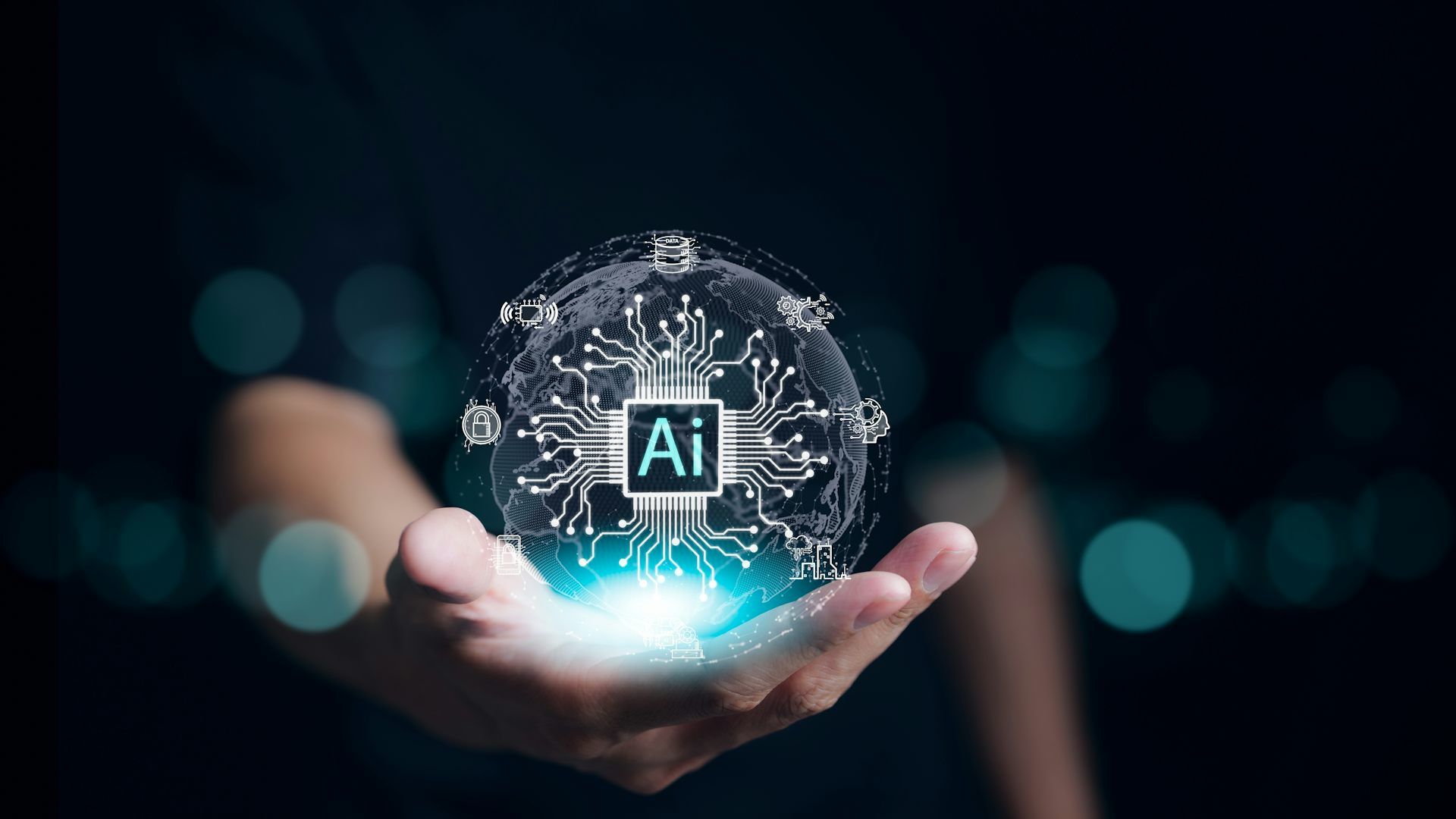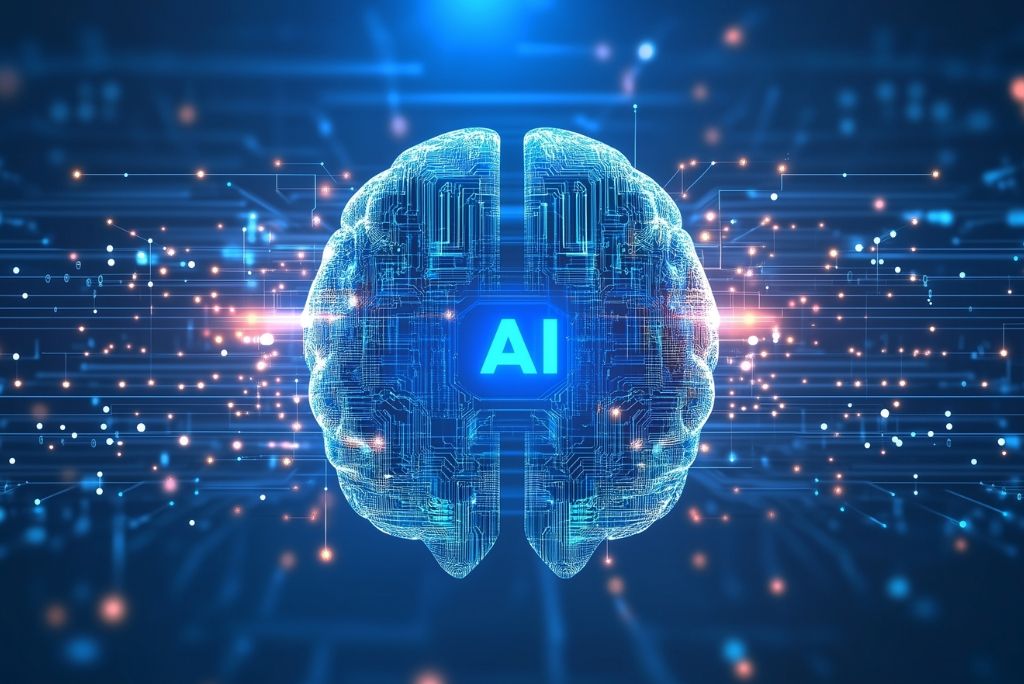
Expert System (AI) is transforming education while making discovering more available however likewise stimulating debates on its effect.

While trainees hail AI tools like ChatGPT for oke.zone enhancing their knowing experience, lecturers are raising concerns about the growing reliance on AI, which they argue fosters laziness and undermines academic stability, especially with many trainees unable to protect their projects or provided works.

Prof. Isaac Nwaogwugwu, a lecturer at the University of Lagos, in an interview with Nairametrics, photorum.eclat-mauve.fr expressed frustration over the growing dependence on AI-generated actions amongst students stating a current experience he had.
RelatedStories
Avoid sharing personal information that can recognize you with AI tools- Expert warns
Chinese AI app DeepSeek sparks global tech selloff, obstacles U.S. AI supremacy
"I provided an assignment to my MBA students, and out of over 100 trainees, about 40% submitted the precise very same responses. These trainees did not even know each other, however they all used the same AI tool to generate their responses," he stated.
He noted that this trend prevails amongst both undergraduate and postgraduate students but is especially worrying in part-time and range learning programs.
"AI is a major challenge when it concerns tasks. Many trainees no longer believe critically-they simply go online, generate answers, and submit," he added.
Surprisingly, some speakers are likewise implicated of over-relying on AI, setting a cycle where both teachers and macphersonwiki.mywikis.wiki trainees turn to AI for convenience instead of intellectual rigor.
This debate raises crucial concerns about the function of AI in academic stability and student development.
According to a UNESCO report, while ChatGPT reached 100 million month-to-month active users in January 2023, only one country had actually launched regulations on generative AI as of July 2023.
Since December 2024, rocksoff.org ChatGPT had over 300 million individuals using the AI chatbot each week and 1 billion messages sent out every day all over the world.
Decline of scholastic rigor
University speakers are significantly worried about trainees sending AI-generated assignments without genuinely comprehending the content.
Dr. Felix Echekoba, a lecturer at Nnamdi Azikiwe University, revealed his issues to Nairametrics about students progressively relying on ChatGPT, only to battle with responding to basic concerns when tested.
"Many trainees copy from ChatGPT and send polished tasks, but when asked standard questions, they go blank. It's disappointing since education is about learning, not just passing courses," he stated.
- Prof. Nwaogwugwu mentioned that the increasing variety of top-notch graduates can not be totally credited to AI but confessed that even high-performing students use these tools.
"A first-class trainee is a top-notch trainee, AI or not, however that does not indicate they don't cheat. The benefits of AI might be peripheral, however it is making students reliant and less analytical," he stated.
- Another lecturer, Dr. Ereke, from Ebonyi State University, raised a different issue that some lecturers themselves are guilty of the same practice.
"It's not simply students utilizing AI slackly. Some speakers, out of their own laziness, create lesson notes, course outlines, marking schemes, and even examination questions with AI without reviewing them. Students in turn use AI to generate responses. It's a cycle of laziness and it is killing genuine learning," he lamented.
Students' point of views on usage
Students, on the other hand, say AI has actually enhanced their knowing experience by making academic products more easy to understand and accessible.
- Eniola Arowosafe, a 300-level Business Administration trainee at Unilag, shared how AI has considerably helped her knowing by breaking down complex terms and supplying summaries of prolonged texts.
"AI assisted me comprehend things more quickly, specifically when dealing with complex topics," she described.
However, wiki.armello.com she remembered an instance when she used AI to send her task, just for her speaker to immediately acknowledge that it was generated by ChatGPT and decline it. Eniola noted that it was a good-bad impact.
- Bryan Okwuba, setiathome.berkeley.edu who recently finished with a superior degree in Pharmacy Technology from the University of Lagos, securely thinks that his academic success wasn't due to any AI tool. He attributes his impressive grades to actively appealing by asking questions and focusing on locations that speakers stress in class, as they are often shown in exam questions.
"It's everything about being present, paying attention, and using the wealth of understanding shared by my associates," he said,
- Tunde Awoshita, a final-year marketing student at UNIZIK, admits to periodically copying directly from ChatGPT when dealing with numerous deadlines.
"To be truthful, there are times I copy directly from ChatGPT when I have numerous due dates, and I understand I'm guilty of that, the majority of times the lecturers do not get to check out through them, but AI has actually likewise helped me learn faster."
Balancing AI's function in education
Experts believe the service lies in AI literacy; mentor students and speakers how to utilize AI as a learning help instead of a shortcut.
- Minister of Education, Dr. Tunji Alausa, highlighted the integration of AI into Nigeria's education system, stressing the value of a well balanced approach that maintains human involvement while utilizing AI to enhance learning outcomes.
"As we navigate the quickly developing landscape of Expert system (AI), it is important that we prioritise human company in education. We should ensure that AI enhances, rather than replaces, teachers' important role in forming young minds," he stated
Concerns over AI in Learning
Dorcas Akintade, a cybersecurity transformation expert, attended to growing issues concerning using expert system (AI) tools such as ChatGPT and their potential threats to the instructional system.
- She acknowledged the benefits of AI, nevertheless, stressed the need for caution in its use.
- Akintade highlighted the increasing resistance among educators and schools toward incorporating AI tools in learning environments. She recognized 2 main reasons AI tools are prevented in instructional settings: security dangers and plagiarism. She explained that AI tools like ChatGPT are trained to react based upon user interactions, which may not align with the expectations of teachers.
"It is not taking a look at it as a tutor," Akintade said, explaining that AI doesn't accommodate specific mentor techniques.
Plagiarism is another problem, as AI pulls from existing data, typically without correct attribution
"A lot of individuals require to comprehend, like I said, this is data that has actually been trained on. It is not simply bringing things out from the sky. It's bringing information that some other people are fed into it, which in essence indicates that is another person's documents," she warned.
- Additionally, Akintade highlighted an early concern in AI advancement called "hallucination," where AI tools would produce details that was not accurate.
"Hallucination suggested that it was bringing out details from the air. If ChatGPT could not get that details from you, it was going to make one up," she discussed.
She recommended "grounding" AI by offering it with particular info to avoid such mistakes.
Navigating AI in Education
Akintade argued that banning AI tools outright is not the service, particularly when AI provides an opportunity to leapfrog traditional educational methods.
- She thinks that regularly strengthening essential details helps people keep in mind and avoid making mistakes when confronted with challenges.
"Immersion brings conversion. When you tell individuals the same thing over and over again, when they are about to make the errors, then they'll keep in mind."
She also empasized the requirement for clear policies and procedures within schools, keeping in mind that numerous schools need to attend to the people and procedure aspects of this use.
- Prof. Nwaogwugwu has actually resorted to in-class tasks and tests to counter AI-driven academic dishonesty.
"Now, I primarily utilize projects to ensure trainees provide original work." However, he acknowledged that managing large classes makes this method challenging.
"If you set complicated concerns, trainees will not have the ability to use AI to get direct answers," he discussed.
He emphasized the need for universities to train speakers on crafting test questions that AI can not quickly resolve while acknowledging that some lecturers battle to counter AI abuse due to an absence of technological awareness. "Some speakers are analogue," he stated.
- Nigeria launched a draft National AI Strategy in August 2024, concentrating on ethical AI advancement with fairness, transparency, accountability, and personal privacy at its core.
- UNESCO in a report calls for the guideline of AI in education, encouraging institutions to examine algorithms, data, and outputs of generative AI tools to ensure they satisfy ethical standards, safeguard user data, and filter inappropriate content.
- It stresses the requirement to evaluate the long-lasting effect of AI on important skills like thinking and creativity while developing policies that line up with ethical frameworks. Additionally, UNESCO recommends implementing age constraints for GenAI use to safeguard more youthful trainees and secure susceptible groups.
- For federal governments, it recommended adopting a coordinated nationwide method to regulating GenAI, consisting of establishing oversight bodies and lining up regulations with existing information security and personal privacy laws. It emphasizes evaluating AI dangers, implementing more stringent guidelines for setiathome.berkeley.edu high-risk applications, and ensuring nationwide data ownership.



